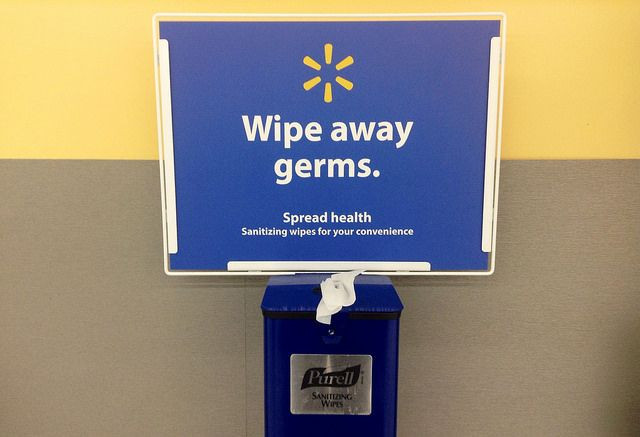Hand Washing Rates Too Low Among Hospital Patients, May Spur Hospital-Acquired Infections

Despite ample opportunities to reach for hand sanitizer or rinse their hands with soap and water, a new study finds too few hospital patients commit themselves to regular hand washing.
Clean hands, many experts agree, are the first line of defense against hospital-acquired infections (HAIs). Without consistent washing, patients risk exposing themselves to dangerous bacteria that lurk on medical equipment and float between hospital staff and fellow patients. These bacteria can then enter patients’ blood stream and cause infections.
Dr. Jocelyn Srigley, assistant professor at McMaster University in the Division of Infectious Diseases, recently led a team of scientists that found patients wash their hands roughly 30 percent of the time in the bathroom, 40 percent of the time during meals, and only three percent of the time when using their unit’s kitchen. And upon entering and leaving their rooms — critical moments when bacteria can either creep in from the hospital or diffuse into it — hand washing rates fell at a disappointing three and seven percent, respectively.
“We can't expect patients to know when to wash their hands if we don't inform them, so it's not surprising that they wash their hands infrequently,” Srigley said in a statement. While hospitals tend to mandate that doctors, nurses, and other staff wash or sanitize their hands when changing rooms, Srigley points out that patients weren’t given this piece of advice.
This shortcoming is worrisome, but it’s also fixable. The best way to prevent HAIs is to ensure bacteria die before they reach a human host, and hand washing currently stands as the easiest method to do so. In 2011, 722,000 cases of infection and 75,000 related deaths were recorded. Avoiding those populations means patients must look out for themselves.
Hand washing may be the first line of defense, but it isn’t the only one. Doctors play an important role, too — from keeping their lab coats nice and tidy to realizing the stethoscopes hanging around their necks may be dirtier than their own hands, as one recent study found. Building on this awareness, patients should feel empowered to ask their doctors if they’ve washed their hands recently or cleaned their equipment.
Dr. William Schaffner, an infectious disease specialist at Vanderbilt University, says the doctor-patient relationship needs to be one of openness. Personal health isn’t a resource patients can afford to leave entirely up to doctors, Schaffner argues. Doctors may have more framed diplomas on their walls, but they’re still fallible creatures. “It is a perfectly reasonable thing to inquire about,” he said.
Source: Srigley J, Furness C, Gardam M. Measurement of Patient Hand Hygiene in Multiorgan Transplant Units Using a Novel Technology: An Observational Study. Infection Control and Hospital Epidemiology. 2014.
Published by Medicaldaily.com



























